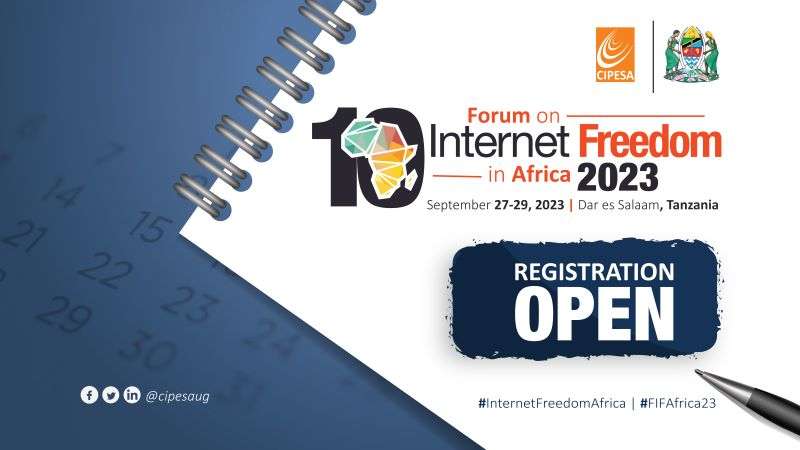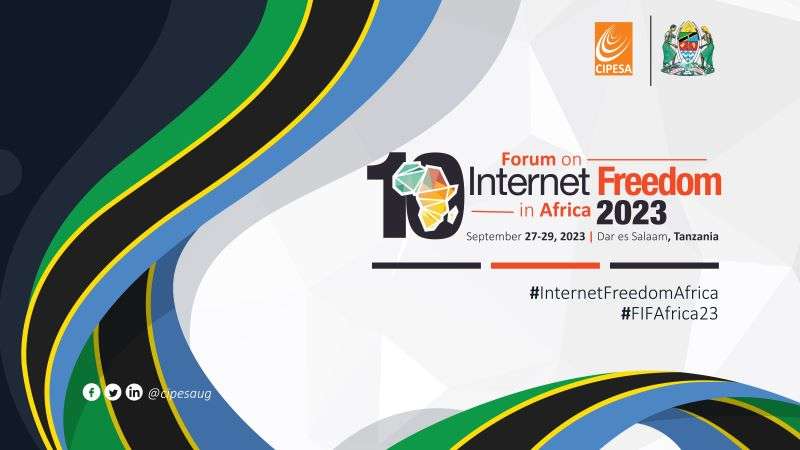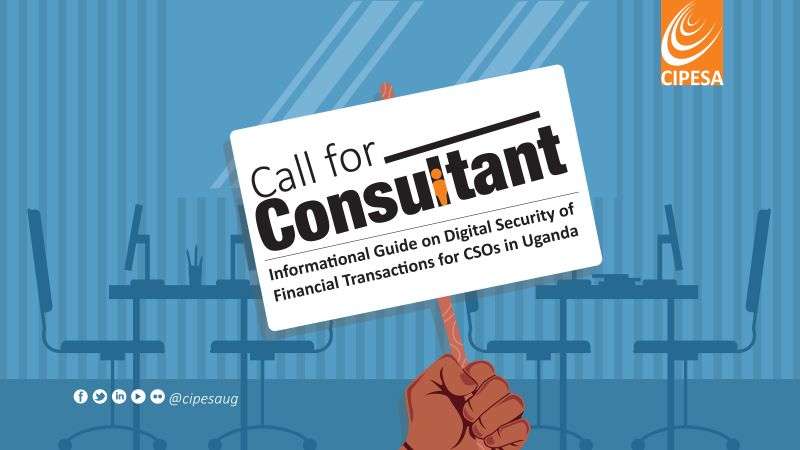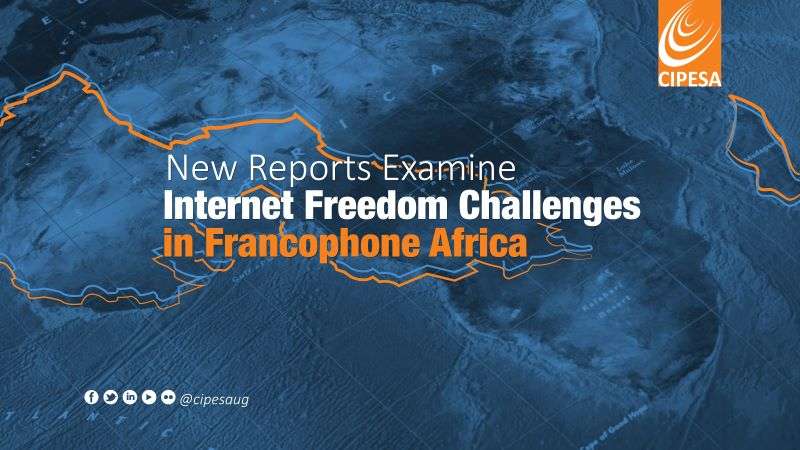By Simone Toussi |
The situation of internet freedom in French-speaking countries in Africa is not regularly and adequately captured in research. However, two reports released in recent months move towards addressing this, as they provide a picture of the key issues affecting digital rights in up to 26 Francophone countries. The reports show that more than ever, Francophone African countries are facing pivotal choices in building a cyberspace that respects citizens’ rights and meets their needs.
Released in May 2023, the Digital freedoms in French-speaking African countries research by Agence Française de Développement (AFD) states that internet rights are at risk in most of the 26 Francophone African countries covered. The report scored and ranked the countries on the respect for digital freedoms based on barriers to access, content limitations, and violations of users’ rights.
A second study conducted by PROTEGE QV and JONCTION, with the support of the Association for Progressive Communications (APC), sheds light on the main internet freedom concerns in Burundi, Cameroon, Chad, Congo, Cote d’Ivoire and Senegal. The countries were assessed using the African Internet Rights and Freedoms Index (AIRFI) 2022 which contains 67 variables based on the 13 principles of the 2016 African Declaration on Internet Rights and Freedoms (ADIRF).
The findings of the assessment were launched at a workshop on June 20, 2023. Speaking at the workshop, the Collaboration on International ICT Policy for East and Southern Africa (CIPESA) Francophone Officer, Simone Toussi, stated that the AIRFI is “a timely tool” given the prevailing context where the internet, despite its multiple advantages, was fostering social inequities while also sometimes serving as a tool for repression by autocratic governments.
Out of 26 countries assessed by AFD, only Mauritius and Seychelles fell in the “Free” category – meaning digital freedoms were fully respected. The worst performers were Burundi, Cameroon, the Central African Republic (CAR), Chad, Djibouti, Equatorial Guinea, and Rwanda, which were ranked as “Non-free”, indicating that digital freedoms are “in serious trouble”. Seven countries were found to be “Partially Free” and 10 countries ranked “Partially Non-Free”, meaning digital freedoms are “Partially respected” and “Partially in trouble” respectively.
Among the major regional trends, the AFD report cites internet shutdowns; deployment of mass or targeted surveillance solutions; online censorship, such as the blocking of local and international media websites; instrumentalisation of cybersecurity and disinformation laws; and a recurrent lack of data protection laws. Meanwhile, the AIRFI assessment highlighted the exclusion of marginalised and at-risk groups; barriers in accessing affordable internet; online surveillance and censorship; intimidation, arrest and prosecution of internet users; internet disruptions; and weak privacy and data protection systems.
The AFD report notes that 21 of the 26 Francophone African countries have shut down the internet or limited online content at least once since 2017, with Burkina Faso, Cameroon, Chad, CAR, Djibouti, Equatorial Guinea, Gabon, Mali, Senegal and Togo being repeat offenders. In 2022, Chad, Burkina Faso and Algeria shut down the internet. Furthermore, the governments of Algeria, Burkina Faso, Burundi, Equatorial Guinea and Mali reportedly applied targeted filtering to websites or blocked social media groups belonging to opposition parties or dissident groups.
Both reports cite the weaponisation of cybersecurity and anti-disinformation laws against journalists, human rights defenders, and citizens critical of governments. The AIRFI assessment shows how cybersecurity laws of Cameroon and Burundi are weak in ensuring digital safety of citizens, journalists and human rights defenders in conflict zones. Such a situation is transposable to other Francophone African countries that do not have either a cybersecurity law – CAR, Republic of Congo, DR Congo, Djibouti and Gabon – or a diligent monitoring system dedicated to cybersecurity and the fight against cybercrime, or both. As a result, some Francophone African countries have suffered an increase in targeted cyberattacks, data breaches within government institutions and banking institutions, and ransomware attacks, as well as multiple cases of online harassment and abuse.
The lack of legislation for the protection of personal data is another concern in the region. The AIRFI assessment notes that rapid mobile penetration and social media use has led to increased data protection and privacy concerns. Many users are not aware of their rights and governments and companies continue to collect massive amounts of data without comprehensive data protection laws or oversight authorities, leaving citizens vulnerable to data theft and privacy breaches.
The AIRF assessment also showed prevalence of surveillance, including through interception of communications and monitoring of people’s movements aided by massive data collection, and the search and seizure of people’s devices. According to the AFD report, the use of Pegasus spyware was documented in Rwanda, Togo, Morocco and Djibouti. Among the 26 countries studied, only 14 have signed or ratified the Malabo Convention, most have outdated, ambiguous or unenforced data protection laws while others, including Burundi, Cameroon, CAR, Comoros, DR Congo and Djibouti, are dragging their feet on adopting a data protection law.
The digital divide is still a challenge, with many marginalised groups left out of the digital society. The reports stress how the high costs of internet access and low internet speeds limit affordable and universal access, especially in rural areas where internet infrastructure is in short supply. Infrastructure roll out and maintenance were particularly a challenge in countries like the CAR and Mali which are faced with political instability and a security crisis linked to internal conflicts or terrorist attacks.
Indeed, digital inclusion of marginalised and at-risk groups scored zero in most countries assessed under the AIRF index. Country reports outlined that persons with disabilities as well as refugees and displaced persons remain offline due to barriers such as language, usability challenges and mandatory SIM card registration tagged to possession of an identity card.
According to the AIRFI assessment, countries such as Chad, Congo and Senegal are yet to take appropriate actions to ensure the right to development and access to knowledge, which are an essential catalyst of digital access, literacy and access to information. Others like Cameroon and Burundi have not taken any measures towards fostering cultural and linguistic diversity in the digital sphere.
The findings of both reports provide a comprehensive overview of the state of digital rights in Francophone Africa, and give visibility to contexts that are largely missing in existing reports on the situation of digital rights in Africa. The reports underscore that digital space in Francophone Africa will shrink further if states continue to exert more pressure on civil liberties through internet shutdowns, surveillance, limits to privacy rights, and adopt laws that limit freedom of expression, assembly and association under the pretext of combating disinformation, hate speech, terrorism and threats to national security.
As a means towards remedy, recommendations are made to policy-makers, civil society, academia, and the private sector. Among them: the need for enactment and enforcement of rights-respecting and inclusive policy and legislation; regular documentation and assessment of digital rights developments in these countries to inform debate and design of interventions; and robust advocacy to align country digital policies and practices with human rights standards and push for transparency and accountability of governments and companies.




